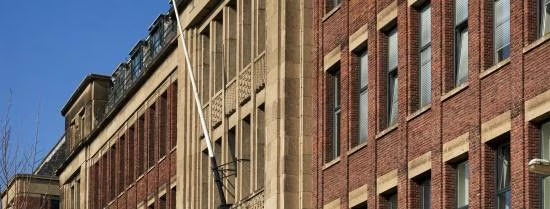Hosted between 3 and 4 April, the workshop brought together researchers, practitioners and civil society actors working on citizen science and frugal innovation in Latin America and the Netherlands.
Different sessions and formats provided a platform for reflection, knowledge exchange and the co-creation of collaborative pathways.

The workshop on citizen technoscience and frugal innovation in the context of environmental degradation took place at ISS on 3 and 4 April.
The workshop invited researchers, practitioners, and civil society from Latin America and the Netherlands to exchange knowledge and co-create pathways for collaboration. Participants explored how citizen science and frugal innovation can support environmental action through accessible technologies, highlighting mutual learning and collective strategies for sustainable impact.
The event was organized by Prince Claus Chair holder Sebastián Ureta and ISS postdoctoral researcher Mandy Geise, with contributions from several ISS researchers, including as panelists and speakers.

Opening the event
Rosalba Icaza Garza, Deputy Rector of Research Affairs and Professor of Global Politics, Feminisms and Decoloniality at ISS, reflected on the role and potential impact of citizen science and technologies in our current social, political and ecological moment. Sebastián Ureta provided an introduction to the concept of citizen technoscience, highlighting its transformative potential. Mandy Geise shared insights and reflections drawn from the Prince Claus Chair research on the use, impact and role of technologies in three citizen technoscience initiatives

Environmental Empowerement
The coordinators of those initiatives talked in detail about their work. Arturo Hernández Velasco (Comunidad y Biodiversidad) discussed how fishing communities in Mexico monitor water quality, biodiversity and fish populations. Maria José Molina (AstraCodex & Rally Femenino) spoke about the training of women in the use of geospatial technologies, including in the development of their own prototypes, in Costa Rica. Sebastián Ureta reflected on the process of developing a low-cost and easy-to-use soil testing kit and participative community workshops to assess soil in areas with long histories of pollution and mining in Chile.

Panel Discussion
In an engaging discussion, presenters and audience explored the role of citizen science and technology in tackling environmental issues. They emphasized how political and social contexts shape their value, questioning whether new technologies and data are always helpful - or if they may also pose risks or burdens. A key tension was the gap between small-scale initiatives and systemic change, particularly in integrating citizen science and frugal innovation into policy. The conversation highlighted the need for long-term strategies and stronger links between local efforts and broader movements.
The day ended with a panel featuring members of citizen science and frugal innovation networks:
- Sarita Albagli
- Peter Knorringa
- Karen Soacha Godoy
- Allan Báez Morales
- Maria Alejandra Pineda
They shared experiences and discussed scaling these approaches, ensuring sustainability, and adapting technologies across different contexts. Speakers and panelists were in conversation with Birendra Singh, Michiel van Oudheusden, Shachi Mokashi, Janneke Elberse, Chiara Stenico, and Ana Barbosa Mendes.

Work sessions
The participants worked in small groups to reflect on three core themes:
- Interconnections between citizen science and frugal innovation
- The meaning of impact and how to understand and demonstrate it
- Building meaningful collaborations
Citizen science and frugal innovation, while distinct, both empower communities through open, accessible approaches to science and technology. Participants explored how to connect these practices by linking data, infrastructure, and perspectives for future collaboration.
To ensure long-term impact, sustainability and adaptability are as crucial as innovation. A cultural shift is needed across institutions to secure lasting support. Participants also stressed the value of sharing knowledge to avoid duplicating efforts. The workshop outcomes will support continued collaboration on citizen science, frugal innovation, and environmental challenges.
We thank all participants on both days for their contributions and the engaging discussions.
The workshop took place within the Prince Claus Chair on Equity and Development (2023-2025) and was made possible with support from Open Science NL (NWO).
- Related content
